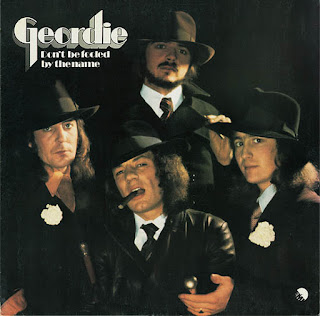After the dissolution of 'Beck, Bogert & Appice' in 1973, Carmine Appice cooperates with 'Jan Akkerman' to recording the album 'Tabernakel'.
Jan Akkerman – Tabernakel
Release date:1973
Genre: Jazz Rock
Tabernakel' was the second solo album of Jan Akkerman. The album was recorded over a period of two weeks in the midst of a sweat-drenched New York summer. George Flynn, a young music professor at the prestigious Columbia University, and a specialist in 15th Century music, collaborated with Jan on some authentic arrangements. Songs like "Britannia by John Dowland" and "Javeh" are mixtures of Baroque charm and modern appeal. "Lammy" moves through the moods that are Jan's life - and death. And "House Of'The King" rocks with an Arabian flavor. Tim Bogert, Carmine Appice, and veteran R&B drummer Ray Lucas assisted to the album.

Jan Akkerman – Tabernakel
Release date:1973
Genre: Jazz Rock
Tabernakel' was the second solo album of Jan Akkerman. The album was recorded over a period of two weeks in the midst of a sweat-drenched New York summer. George Flynn, a young music professor at the prestigious Columbia University, and a specialist in 15th Century music, collaborated with Jan on some authentic arrangements. Songs like "Britannia by John Dowland" and "Javeh" are mixtures of Baroque charm and modern appeal. "Lammy" moves through the moods that are Jan's life - and death. And "House Of'The King" rocks with an Arabian flavor. Tim Bogert, Carmine Appice, and veteran R&B drummer Ray Lucas assisted to the album.
- Britannia
- Coranto For Mrs. Murcott
- The Earl Of Derby, His Galliard
- House Of The King
- A Galliard (by Anthony Holborne)
- A Galliard (by John Dowland)
- A Pavan
- Javeh
- A Fantasy
- Lammy
- a) I Am
- b) Asleep, Half Asleep, Awake
- c) She Is
- d) Lammy, We Are
- e) The Last Will And Testament
- f) Amen
- Jan Akkerman - Lute and Bass Guitar on "Britannia"
- Electric Guitars and Percussion on "House Of The King"
- Acoustic Guitar on "Javeh"
- Electric & Acoustic Guitar, Organ, Lute and Percussion on "Lammy"
- Lute on "Coranto For Mrs. Murcott", "The Earl Of Derby, His Galliard",
- A Galliard", "A Pavan" and "A Fantasy"
- Ray Lucas - Drums on "Britannia" and "Lammy"
- Tim Bogert - Bass Guitar on "House Of The King" and "Lammy"
- Carmine Appice - Drums on "House Of The King" and "Lammy"
- George Flynn - Harpsichord, Piano and Glockenspiel on "Javeh"
- Harpsichord on "Lammy"
- Daniel Waitzman - Flutes on "Lammy"
In 1976 Carmine Appice playing drums on the song of Tommy Bolin 'Someday We'll Bring Our Love Home' from the album 'Private Eyes'.
In 1978 be guest to the albums of Paul Stanley, Les Dudek and Stanley Clarke.
Les Dudek – Ghost Town Parade
Release date:1978
Genre: Southern Rock
Les Dudek – Ghost Town Parade
Release date:1978
Genre: Southern Rock
'Ghost Town Parade' is the third studio
album by American guitarist 'Les Dudek'.
- Central Park
- Bound To Be A Change
- Gonna Move
- Friend Of Mine
- Does Anybody Care
- Down To Nothin'
- Tears Turn Into Diamonds
- Falling Out
- Ghost Town Parade
- Les Dudek - Guitars, Vocals
- Mike Finnigan - Keyboards, Backing Vocals
- Jim Kreuger - Guitar On #2,#4
- Max Gronenthal - Keyboards On #1,#3,#5,#6,#7,#8,#9, Backing Vocals On #3,#7,#8,#9
- Robert Powell - Bass On #1,#3,#5,#6,#7,#8,#9
- Gerald Johnson - Bass On #2,#4
- Jim Keltner - Drums On #2,#4
- Jeffrey Porcaro - Drums On #2,#4
- Gary Mallaber - Drums On #1,#3,#5,#6,#8,#9
- Carmine Appice - Drums On #1,#3,#5,#6,#7,#8,#9
- Patrick Murphy - Percussion On #1,#2,#4,#5,#6
- Jack Bruce - Backing Vocals On #1,#5,#6








